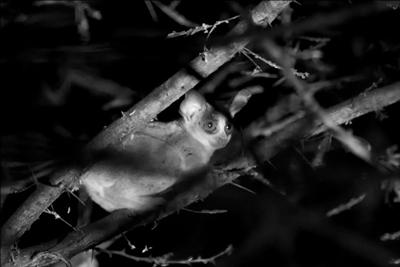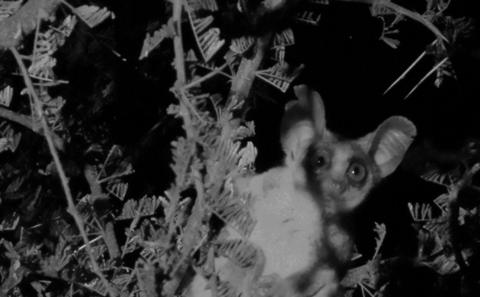Things that go honk in the night: shedding new light on Africa's nocturnal primates Event
For more information regarding this event, please telephone Kim Lipscombe on 02380 59 7747 or email K.R.Lipscombe@soton.ac.uk .
Event details
Caroline's research interests lie in understanding the evolution of social systems and reproductive and mating strategies, and how these are driven and constrained by ecological conditions. She focus's primarily on large mammal behaviour, especially primates. Caroline conducted her DPhil at Oxford University under the supervision of Professor Robin Dunbar, funded by the British Academy ‘Lucy to Language’ project. After completing her DPhil in 2010, she was a teaching fellow at Lancaster University before joining MMU as a lecturer in 2011.

Because of their nocturnal habits and often inaccessible locations, bushbabies (Galagidae) are one of the least-studied groups of primates and little is known about the behaviour and ecology of most species. Field studies are few and very limited, and much of our current knowledge about these animals derives from small captive populations. Bushbabies have extensive and diverse vocal repertoires and over the last two decades, several new morphologically cryptic species have been reported based primarily on advertisement calls. Recent advances in bioacoustic technologies and approaches offer a new way to study these animals and I have recently begun the first field study of Galago senegalensis, in Tanzania. In addition to traditional behavioural sampling methods I am using acoustic playbacks to explore their behaviour and phylogeny . I present my initial findings relating to their social behaviour and habitat use, and the first use of playback experiments to explore their recognition of and response to species-specfic calls. These new approaches offer a way to gain valuable insight into the behaviour, ecology and distribution of these little-known species, and are invaluable at a time when they are subject to increasing habitat loss and fragmentation.
Speaker information
Dr Caroline Bettridge,Manchester Metropolitan University,School of Science and the Environment
